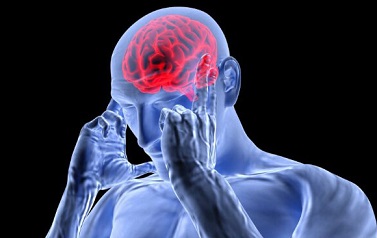Study Highlights Factors Contributing To Prolonged PTSD-Like Symptoms Following Mild COVID-19
Nikhil Prasad Fact checked by:Thailand Medical News Team Mar 16, 2024 1 year, 11 months, 5 days, 20 hours, 16 minutes ago
COVID-19 News: The COVID-19 pandemic has brought about a paradigm shift in how we perceive and approach health crises globally. Apart from its immediate impact on physical health, the virus has also left an indelible mark on mental and emotional well-being. Among the myriad challenges faced by individuals recovering from COVID-19, the emergence of prolonged post-traumatic stress disorder (PTSD)-like symptoms has become a significant area of concern, particularly among those who experienced mild forms of the disease. This
COVID-19 News report delves into a comprehensive exploration of the multifaceted factors contributing to prolonged PTSD-like symptoms following mild COVID-19, as illuminated by a recent collaborative study conducted across various institutions in Poland and the United States.
 Factors Contributing To Prolonged PTSD-Like Symptoms Following Mild COVID-19
The COVID-19 Landscape
Factors Contributing To Prolonged PTSD-Like Symptoms Following Mild COVID-19
The COVID-19 Landscape
The World Health Organization's declaration of COVID-19 as a global pandemic in March 2020 marked a pivotal moment in modern history. Since then, millions of confirmed cases and fatalities have been recorded worldwide, underscoring the far-reaching impact of the virus. COVID-19, caused by the SARS-CoV-2 virus, not only poses a threat to physical health but also exerts profound psychological distress and disability, especially among vulnerable populations.
Understanding COVID-19 Symptoms: A Multifaceted Approach
COVID-19 manifests through a spectrum of symptoms categorized into three main domains: cardiorespiratory, inflammatory, and neurological. However, recent studies employing factor analysis techniques have unveiled a more nuanced understanding of COVID-19 symptomatology. For instance, exploratory factor analysis conducted in the study revealed five distinct groups of symptoms: flu-like, respiratory, cold-related, neurological, and neurocognitive symptoms.
The neurological symptoms encompass a wide array of challenges, including anosmia (loss of smell), headaches, neuropathies, dizziness, paresthesia, and cognitive impairments. These neurocognitive difficulties have emerged as a significant concern among COVID-19 survivors, affecting approximately 70% of individuals post-recovery. Commonly reported neurocognitive issues include brain fog, difficulties with concentration, altered sensory perceptions, sleep disturbances, and persistent fatigue.
Linking COVID-19 Symptoms to PTSD-Like States
The study sought to unravel the intricate relationship between COVID-19 symptoms and subsequent development of PTSD-like symptoms among survivors. Post-traumatic stress disorder (PTSD) has been recognized as a potential long-term consequence of exposure to traumatic events, including infectious diseases like COVID-19. The unique stressors associated with COVID-19, including the fear of mortality, social isolation, stigma, and uncertainties surrounding the virus, contribute to the development of PTSD-like states.
Exploring Predictors and Risk Factors
The study delved into vario
us predictors and risk factors associated with prolonged PTSD-like symptoms post-mild COVID-19. Factors such as anxiety, depression, pre-existing mental health conditions, COVID-related stigma, and the severity of COVID-19 neurocognitive symptoms emerged as significant predictors of prolonged psychological distress.
The Role of Neurocognitive Symptoms in Prolonged PTSD-Like States
One of the most compelling findings of the study was the significant role played by COVID-19 neurocognitive symptoms in predicting prolonged PTSD-like symptoms. Difficulties in memory, thinking processes, verbal communication, and sensory perceptions post-COVID-19 were strongly correlated with persistent psychological distress. This highlights the profound impact of neurocognitive impairments on individuals' overall well-being and quality of life post-recovery.
Neurocognitive Challenges and Daily Functioning
The study also underscored the challenges posed by neurocognitive deficits in daily functioning. Individuals experiencing post-COVID neurocognitive symptoms often struggle with work performance, managing everyday tasks, and maintaining social connections. These difficulties exacerbate psychological distress, contributing to the persistence of PTSD-like symptoms.
The Intersection of Trauma and Cognitive Functioning
The intricate relationship between trauma and cognitive functioning was a focal point of the study. PTSD symptoms, including intrusive thoughts, hyperarousal, avoidance behaviors, and mood disturbances, often co-occur with neurocognitive challenges such as attention deficits, memory impairments, and executive function disruptions. Structural changes in brain regions associated with both PTSD and cognitive functions further elucidate the complex interplay between trauma and cognition.
Implications for Post-COVID-19 Care
The study's findings have significant implications for post-COVID-19 care and rehabilitation. Integrating comprehensive neuropsychological assessments and interventions into healthcare protocols is crucial for addressing the long-term sequelae of COVID-19, particularly neurocognitive impairments and psychological distress. However, the accessibility and recognition of neuropsychological services remain a challenge in many healthcare systems worldwide, necessitating concerted efforts to bridge this gap.
Challenges and Limitations
While the study provides valuable insights into the factors contributing to prolonged PTSD-like symptoms post-mild COVID-19, it also acknowledges certain limitations. The dynamic nature of the pandemic, changing epidemiological landscapes, and socio-political influences, such as the war in Ukraine, were not explicitly controlled for in the study. Additionally, the use of self-reported measures may introduce biases, highlighting the need for robust research methodologies in future investigations.
Conclusion: Towards Holistic Post-COVID Care
In conclusion, the study illuminates the multifaceted determinants contributing to prolonged PTSD-like symptoms following mild COVID-19. It underscores the critical role of neurocognitive symptoms, alongside emotional and social factors, in shaping post-recovery mental health outcomes. The findings emphasize the importance of integrating neuropsychological assessments and interventions into post-COVID-19 care paradigms to facilitate recovery and enhance individuals' overall well-being. As we navigate the aftermath of the pandemic, prioritizing mental health support and comprehensive rehabilitation strategies is imperative in fostering resilience and recovery among COVID-19 survivors.
The study findings by researchers from the University of Warsaw-Poland, The Maria Grzegorzewska University-Poland, St. Joseph's University New York-USA, Medical University of Silesia-Poland, The University of New South Wales-Australia, James Madison University-United States and the University of Virginia-USA, were published in the peer reviewed journal: Frontiers in Psychology.
https://www.frontiersin.org/journals/psychology/articles/10.3389/fpsyg.2024.1358979/full
For the latest
COVID-19 News, keep on logging to Thailand Medical News.
